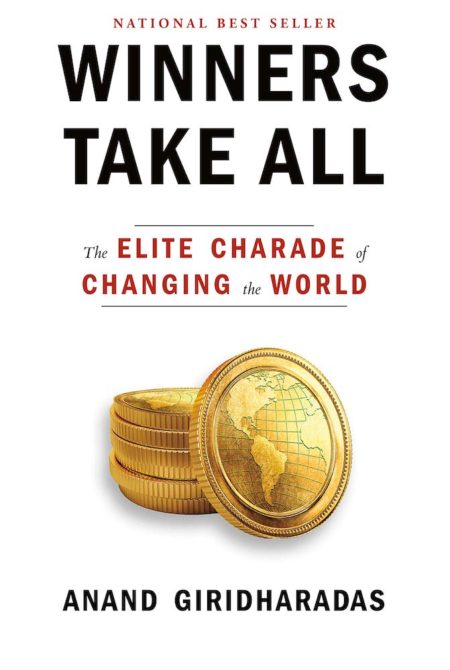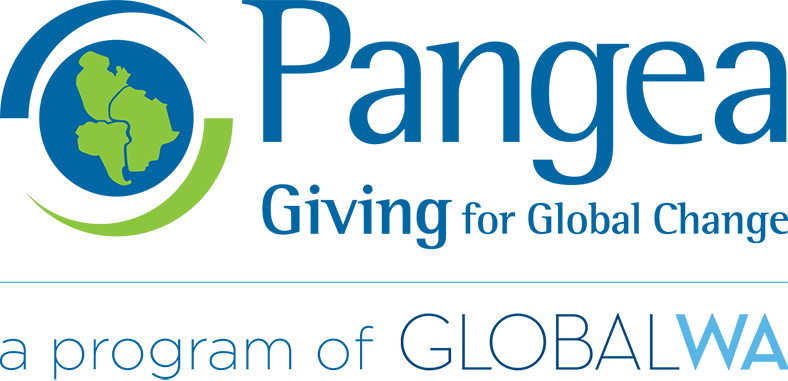Winners Take All, a book discussion
Thanks to all who came out for the book discussion last Thursday night about Anand Giridharadas’ Winners Take All: The Elite Charade of Changing the World. We missed those of you who wanted to come but couldn’t make it. It was a lively discussion, with most people generally agreeing with the author’s issues even if we didn’t always agree with the way he presented them. We plan to have more book discussions during the coming year and welcome suggestions for books we might consider.
In general, we felt that Pangea escapes much of the criticism the author levels at philanthropy—because our grants are too small to carry with them much influence and because we have learned to listen to our partners rather than telling them what they should do.

However, one discussion in the Epilogue is directly applicable to us. Giridharadas repeats thoughts voiced by Chiara Cordelli, co-editor of a collection of essays titled Philanthropy in Democratic Societies, where she compares the elites who profit from a broken system and then turn around to do good with those profits with the owner of a painting who later finds out it had been stolen. Cordelli says that if you know who the painting has been stolen from, you are obligated to return it to them. She goes on: “To do a modest bit of good while doing nothing about the larger system is to keep the painting…You may be working on a prison education program, but you are choosing not to prioritize the pursuit of wage and labor laws that would make people’s lives more stable and perhaps keep some of them out of jail.” Pangea does try to understand root causes, and some of our grants do address those causes, albeit in a small way. But we have shied away from most advocacy work. Perhaps root causes and advocacy should be part of upcoming pod conversations about who and what we should be supporting.
If you haven’t yet read the book, we recommend it. There are other books, listed below, that address many of the same issues, sometimes from a different viewpoint.
David Callahan, in The Givers: Wealth, Power, and Philanthropy in a New Gilded Age, explores who gives, why they give, how they give, and why that’s not good enough.
Decolonizing Wealth: Indigenous Wisdom to Heal Divides and Restore Balance, by Edgar Villanueva, is a provocative analysis of the dysfunctional colonial dynamics at play in philanthropy and finance. Villanueva points to the Native American tradition as a possible solution.
Robert Reich, in Just Giving: Why Philanthropy is Failing Democracy and How It Can Do Better, analyzes the pros and cons of tax-subsidized philanthropy, showing how what appears to be extremely generous might be doing more harm than good, undermining democratic values.
And for a more positive view of Big Philanthropy, read Matthew Bishop and Michael Green’s Philanthrocapitalism: How Giving Can Save the World or Rutger Bregman’s Utopia for Realists.
Finally, some articles from the popular press:
The Thriving World, the Wilting World, and You is the transcript of Anand Giridharadas’ 2015 speech at the Aspen Institute that sparked the discuss a discussion and eventually led to the publication of Winners Take All.
The Stranger, in its own inimitable way, points out the shortcomings of the Giving Pledge and Mackenzie Bezos’ pledge to give away half her assets: If Rich People Really Wanted to Help, They’d Pay More in Taxes
The Wealth Detective Who Finds the Hidden Money of the Super Rich profiles the French economist, now a UC Berkeley professor, who is the world’s expert on where the experts hide their money. He and a colleague are advising several of the Democratic presidential candidates on tax strategies to address the growing income gap between rich and poor.
And In Billionaires is the Preservation of the World is just plain amusing, poking fun at billionaires.
